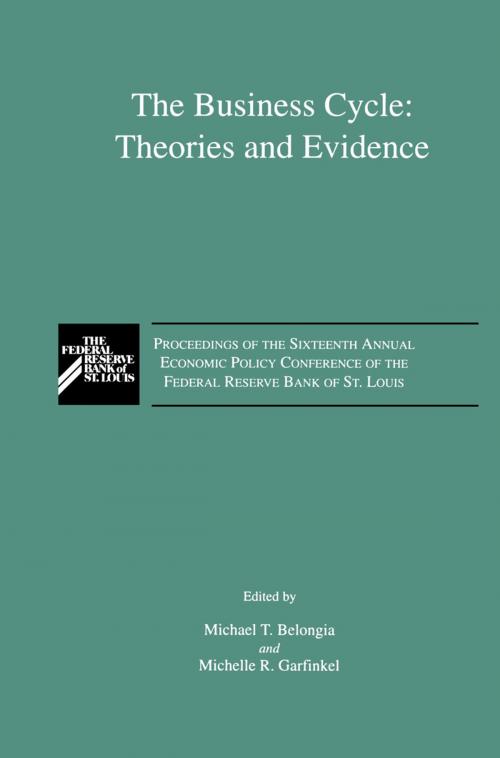The Business Cycle: Theories and Evidence
Proceedings of the Sixteenth Annual Economic Policy Conference of the Federal Reserve Bank of St. Louis
Business & Finance, Economics, Econometrics, Macroeconomics| Author: | ISBN: | 9789401129565 | |
| Publisher: | Springer Netherlands | Publication: | December 6, 2012 |
| Imprint: | Springer | Language: | English |
| Author: | |
| ISBN: | 9789401129565 |
| Publisher: | Springer Netherlands |
| Publication: | December 6, 2012 |
| Imprint: | Springer |
| Language: | English |
These proceedings, from a conference held at the Federal Reserve Bank of St. Louis on October 17-18, 1991, attempted to layout what we currently know about aggregate economic fluctuations. Identifying what we know inevitably reveals what we do not know about such fluctuations as well. From the vantage point of where the conference's participants view our current understanding to be, these proceedings can be seen as suggesting an agenda for further research. The conference was divided into five sections. It began with the formu lation of an empirical definition of the "business cycle" and a recitation of the stylized facts that must be explained by any theory that purports to capture the business cycle's essence. After outlining the historical develop ment and key features of the current "theories" of business cycles, the conference evaluated these theories on the basis of their ability to explain the facts. Included in this evaluation was a discussion of whether (and how) the competing theories could be distinguished empirically. The conference then examined the implications for policy of what is known and not known about business cycles. A panel discussion closed the conference, high lighting important unresolved theoretical and empirical issues that should be taken up in future business cycle research. What Is a Business Cycle? Before gaining a genuine understanding of business cycles, economists must agree and be clear about what they mean when they refer to the cycle.
These proceedings, from a conference held at the Federal Reserve Bank of St. Louis on October 17-18, 1991, attempted to layout what we currently know about aggregate economic fluctuations. Identifying what we know inevitably reveals what we do not know about such fluctuations as well. From the vantage point of where the conference's participants view our current understanding to be, these proceedings can be seen as suggesting an agenda for further research. The conference was divided into five sections. It began with the formu lation of an empirical definition of the "business cycle" and a recitation of the stylized facts that must be explained by any theory that purports to capture the business cycle's essence. After outlining the historical develop ment and key features of the current "theories" of business cycles, the conference evaluated these theories on the basis of their ability to explain the facts. Included in this evaluation was a discussion of whether (and how) the competing theories could be distinguished empirically. The conference then examined the implications for policy of what is known and not known about business cycles. A panel discussion closed the conference, high lighting important unresolved theoretical and empirical issues that should be taken up in future business cycle research. What Is a Business Cycle? Before gaining a genuine understanding of business cycles, economists must agree and be clear about what they mean when they refer to the cycle.















